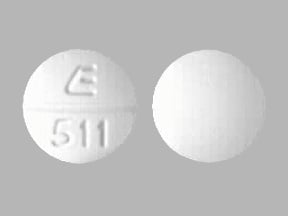
Quinidine Sulfate Coupons & Savings Card – Discount Prices from $9.16
Quinidine is an antiarrhythmic medication used to treat and prevent various types of irregular heartbeats, including atrial fibrillation, atrial flutter, and ventricular arrhythmias. It works by blocking sodium channels in the heart, which helps to slow down abnormal electrical activity, thereby reducing the occurrence of irregular heart rhythms. While quinidine can significantly enhance your ability to engage in everyday activities by decreasing irregular heartbeats, it may not completely eliminate them. Your doctor may also prescribe additional medications such as anticoagulants or beta blockers to help manage potential blood clots and regulate your heart rate. Always consult with your healthcare provider for advice tailored to your health needs.
Our coupons are free to use. Before paying, show the pharmacist your Quinidine Sulfate savings card to get your free discount. Use our filters below to edit the prescription box to match your needs. The Quinidine Sulfate prices will update based on your prescription needs. Above our Quinidine Sulfate coupons, you can change your location to see pharmacy prices and costs in other areas. We're here to help you buy Quinidine Sulfate at the lowest price with our prescription discount card.
My prescription
Edit
200MG, Quinidine Sulfate (30 Tablets)
Select pharmacy

CVS
$391.68
COUPON PRICE
Albertsons
$9.16
COUPON PRICE
Walgreens
$10.00
COUPON PRICE
Walmart
$368.06
COUPON PRICEQuinidine Sulfate savings card
Show this card to your pharmacist
Albertsons
$9.16
BIN
ID
PCN
GRP
019876
LH199A71F6
CHIPPO
LHX
Powered by
Quinidine is an antiarrhythmic medication used to treat and prevent various types of irregular heartbeats, including atrial fibrillation, atrial flutter, and ventricular arrhythmias. It works by blocking sodium channels in the heart, which helps to slow down abnormal electrical activity, thereby reducing the occurrence of irregular heart rhythms. While quinidine can significantly enhance your ability to engage in everyday activities by decreasing irregular heartbeats, it may not completely eliminate them. Your doctor may also prescribe additional medications such as anticoagulants or beta blockers to help manage potential blood clots and regulate your heart rate. Always consult with your healthcare provider for advice tailored to your health needs.
Our coupons are free to use. Before paying, show the pharmacist your Quinidine Sulfate savings card to get your free discount. Use our filters below to edit the prescription box to match your needs. The Quinidine Sulfate prices will update based on your prescription needs. Above our Quinidine Sulfate coupons, you can change your location to see pharmacy prices and costs in other areas. We're here to help you buy Quinidine Sulfate at the lowest price with our prescription discount card.
More prescriptions for ventricular arrhythmia
coupons from$26.04Save 48%
coupons from$6.74Save 90%
coupons from$26.04Save 48%
coupons from$172.32Save 65%
coupons from$249.96Save 60%
coupons from$591.39Save 73%
coupons from$66.15Save 38%
coupons from$6.74Save 90%
More prescriptions for ventricular arrhythmia
Amiodarone Save 48%coupons from $26.04
Sorine Save 90%coupons from $6.74
Pacerone Save 48%coupons from $26.04
Norpace Save 65%coupons from $172.32
Norpace Cr Save 60%coupons from $249.96
Sotylize Save 73%coupons from $591.39
Acebutolol Save 38%coupons from $66.15
Betapace Save 90%coupons from $6.74
Quinidine Sulfate dosage forms
Use our Quinidine Sulfate 200MG coupon with prices from $9.16 for 30 Tablets. You can also use our Quinidine Sulfate 200MG coupon with prices from $13.05 for 100 Tablets. We have a Quinidine Sulfate 300MG coupon with prices from $8.71 for 30 Tablets. You can use our Quinidine Sulfate 300MG coupon with prices from $17.77 for 100 Tablets.
Dosage Quantity Price from Per unit 200MG 30 Tablets $9.16 $0.30 200MG 100 Tablets $13.05 $0.13 300MG 30 Tablets $8.71 $0.29 300MG 100 Tablets $17.77 $0.18
| Dosage | Quantity | Price from | Per unit |
|---|---|---|---|
| 200MG | 30 Tablets | $9.16 | $0.30 |
| 200MG | 100 Tablets | $13.05 | $0.13 |
| 300MG | 30 Tablets | $8.71 | $0.29 |
| 300MG | 100 Tablets | $17.77 | $0.18 |
